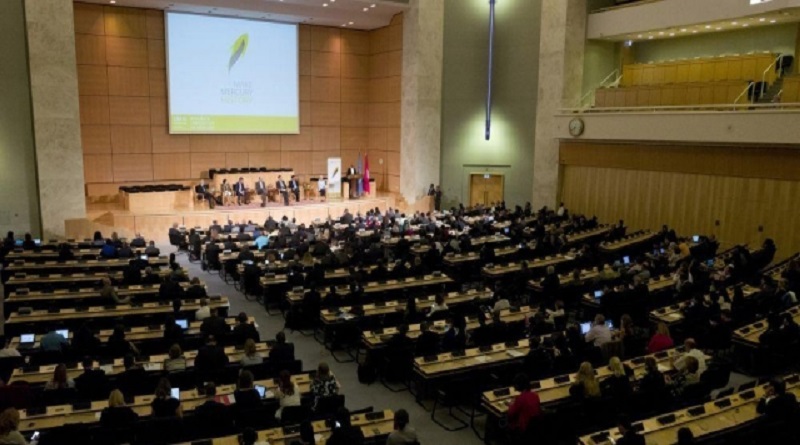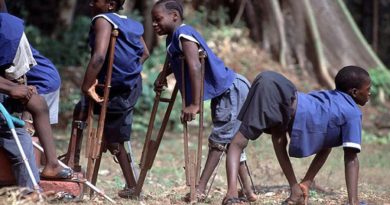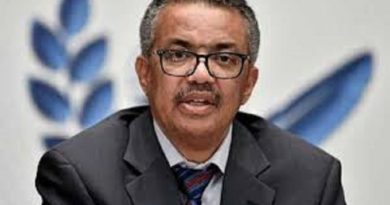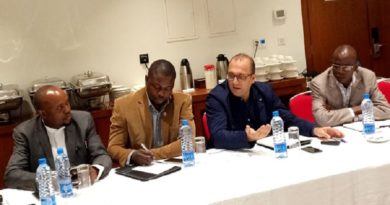Minamata Convention COP-5 kicks-off on Monday in Switzerland
More than eight hundred participants – including Parties’ representatives, non-parties governments, intergovernmental organizations, UN bodies and NGOs – are already confirmed to attend the meeting the fifth meeting of the Conference of the Parties to the Minamata Convention on Mercury (COP-5) that will take place in person from Monday (today), 30 October to Friday, 3 November 2023 at the International Conference Centre (CICG) in Geneva, Switzerland.
Expectedly, a lot of activities that include plenary sessions, high-level events, Minamata movie projection, photo exhibition among other special events have been lined up for the week-long event taking place in Geneva, Switzerland.
According to the organisers, the COP-5 main agenda items will focus on:
- The COP will consider phase-out dates for mercury-added products and the availability of non-mercury alternatives for two industrial processes. The COP will also consider amendment proposals from the Africa Region, including additional lighting categories for the complete phase-out of all fluorescent lamps, further measures and elimination of 1ppm threshold for skin lightening products, and a 2030 phase-out date for dental amalgam.
- Artisanal and small-scale gold mining (ASGM) remains the largest source of mercury use and emissions globally. The COP recalls the relevance of engaging Indigenous peoples as well as local communities in the work to reduce and eliminate mercury use on this informal sector including in development and implementation of National Action Plans. These measures are vital to protect human health (including women and children) from mercury.
- Mercury use in ASGM impacts biodiversity and ecosystem services. The recent adoption of the Global Biodiversity Framework was a major milestone for the world and the Minamata Convention. The Secretariat has identified activities to be carried out in the biennium regarding pollution reduction.
- COP-5 is expected to conclude the second review of the Convention’s financial mechanism (GEF and Specific International Programme). There is a need to increase efforts to augment funding in the Specific Trust Fund to continue its direct support to developing country parties in their implementation of the Convention.
- 95% of parties submitted their first full national reports on measures taken to implement the Convention at the national level. The Implementation and Compliance Committee examined issues based on such submissions and made recommendations to COP-5 relating to, inter alia, informal primary mercury mining, the identification of stocks, and exports which are not in compliance with the Convention.
- National reporting is expected to be an important input for indicators to monitor the effectiveness of the Convention. COP-5 will consider the end date of the first effectiveness evaluation, the establishment of the Effectiveness Evaluation Group to develop recommendations on how to improve the effectiveness of the Convention, and the adoption of indicators.
- Emissions, Releases, Waste: Mercury emissions into the air are the major pathway for global environmental impact. Many Parties are already taking the required measures in advance of deadlines put in the Convention, but they still have a great deal of implementation to undertake. For mercury releases to land and water, the COP will consider adopting draft guidance on BAT/BEP prepared by the Group of Technical Experts. Regarding waste, COP-5 is expected to adopt thresholds for mercury waste contaminated with mercury or mercury compounds.
- Gender, Knowledge Management: The COP will consider the Gender Action plan and a digital strategy to guide its work to better support parties in the implementation of the Convention.
- The Minamata Convention on Mercury is part of the global environmental agenda and contributes to addressing the triple planetary crises of climate change, biodiversity loss and pollution. It cooperates with other international entities, particularly in the chemicals and waste cluster. The COP may welcome the opportunity for the Minamata Convention Secretariat to become an observer at the meetings of the UN Climate Change Conferences and the adoption of the Global Framework on Chemicals – For a planet free of harm from chemicals and waste that was recently adopted at the ICCM5 Conference in Bonn, requesting the Secretariat to further collaborate with them.
Among the high-level participants, COP-5 will include: Roger Baro, Minister of Environment, Water and Sanitation, Burkina Faso; Thierry Kamach, Minister of Environment and Sustainable Development, Central African Republic; Claudia Dumitru, President of the fifth meeting of the Conference of the Parties to the Minamata Convention on Mercury, Romania.
Others are Monika Stankiewicz, Executive Secretary of the Minamata Convention on Mercury; Tani Yoichi, Minamata Convention on Mercury Promotion Network (MicoNet) the Collaboration Center for Minamata Disease Victims (Sunday 29 and Monday 30 Oct.); Mr. and Mrs. Sato, Members of the Minamata Disease Mutual Aid Society (Sunday 29 and Monday 30 Oct.); Andrew Levitas, filmmaker and professor (Sunday 29 and Monday 30 Oct.); Amira Adawe, Director, Beautywell (Tuesday 31 Oct.); Kheris Rogers, Flexin’ In My Complexion (Tuesday 31 Oct.) and Meera Senthilingam, Editor CNN (Tuesday 31 Oct.).
The fifth meeting of the Conference of the Parties to the Minamata Convention on Mercury (COP-5) will be pivotal for the future work of the Convention and the protection of human health and the environment from the adverse effects of mercury. All official information related to the event is published on the Convention’s website in a special section dedicated to COP-5.




